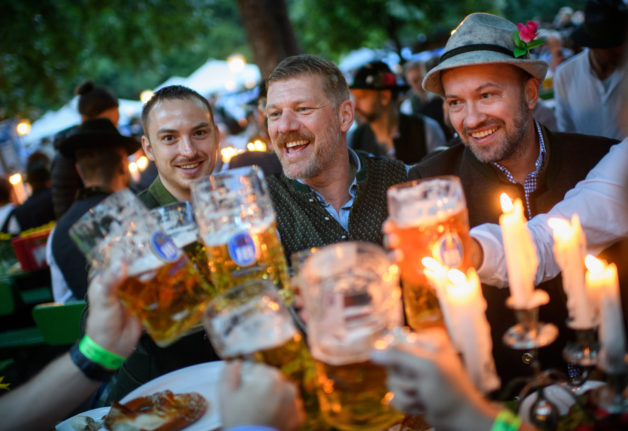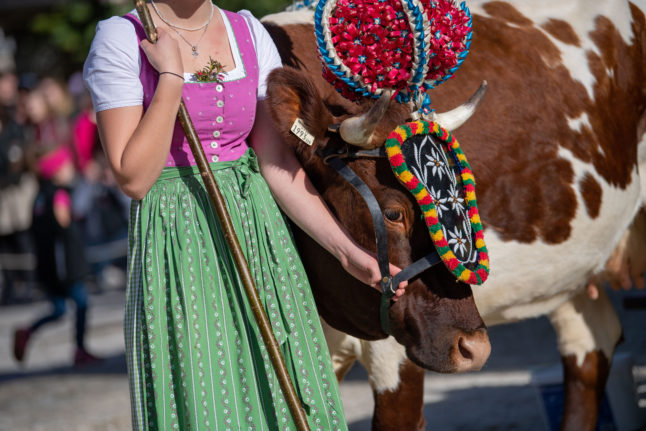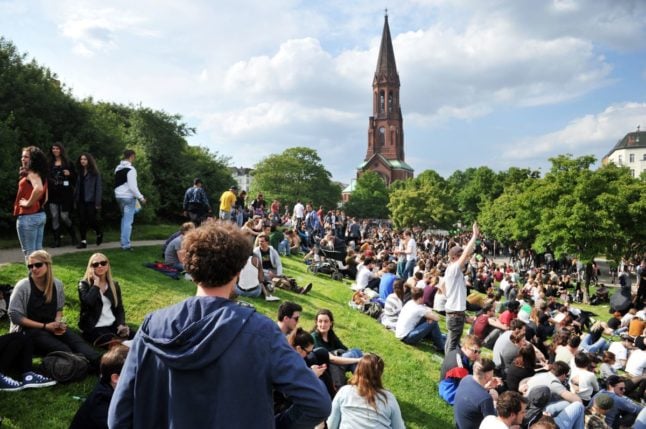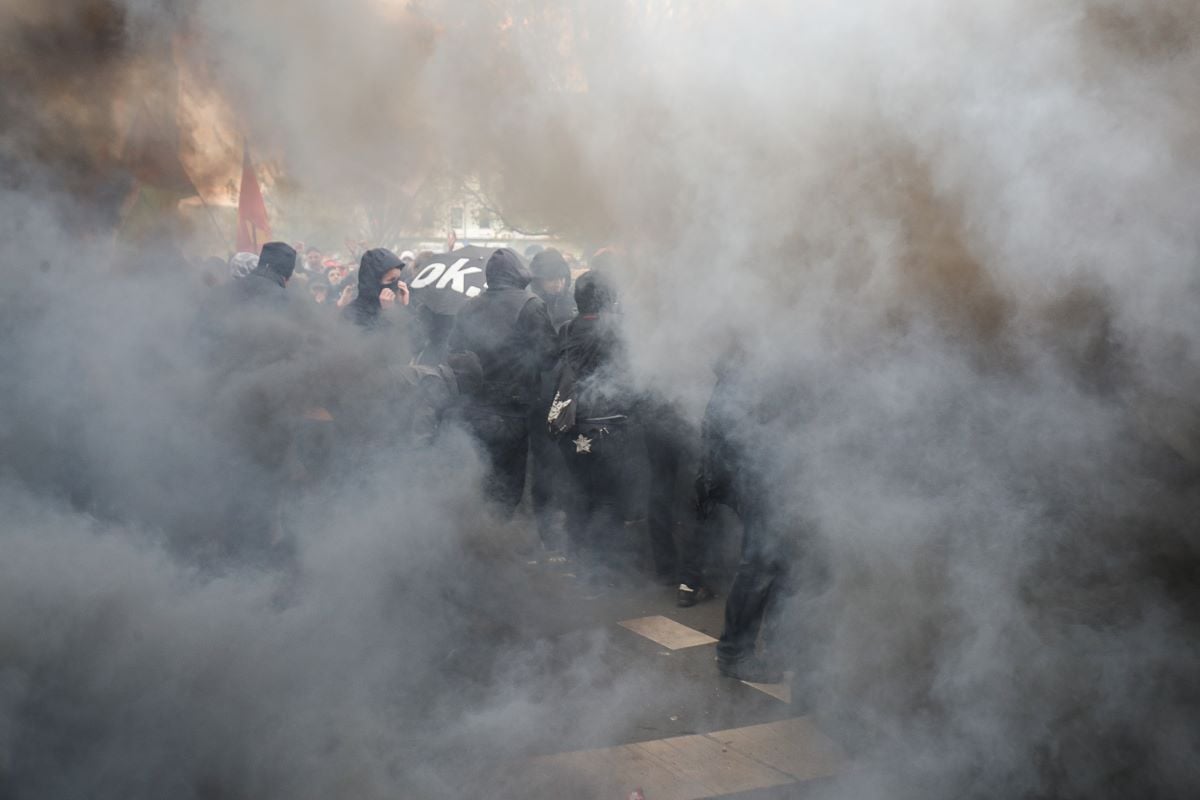We’ve probably all made jokes in our time about something being “typically German” – but on closer inspection, it turns out that typical Germans are a far more diverse bunch than it first appears.
As in pretty much any country in the world, Germans engage in a lot of good-humoured ribbing about themselves and people from other parts of the country. Whether it’s the north/south divide or the stereotypes about ignorant rural folk and snobbish city-dwellers, these cliches shape our worldview and our sense of where we fit in. Fascinatingly, some stereotypes endure over hundreds of years, while others fade into the mists of time.
One example of the latter are the terms “Besser Wessi” and “Jammer Ossi”, which paint a picture of the slightly tense relations between people from the former East Germany and the West after reunification.
READ ALSO: Eight unique words and phrases that tell us something about Germany
The stereotype of the West German (or the “better westerner”) was someone who felt superior to people from the DDR and looked down on them. Meanwhile, the rueful “Jammer Ossi” (or “sorry east German”) walked around in a cloud of self-pity and with a visible chip on their shoulder.
“Besser Wessi” was actually the German word of the year in 1991, which gives you an interesting snapshot into the cultural preoccupations of the day. But a recent poll found that most young people in Germany actually have no idea what these idioms are meant to refer to.
Nevertheless, there are many regional stereotypes in Germany that are still very much alive and well. While these are definitely not meant to be taken seriously, here are some of the main ones.
Bavaria
Bavaria occupies a unique place in Germany for being responsible for the vast majority of cliches about Germans in general while also being determined to set itself apart from everywhere else.
For most Germans, the Bavarian stereotype is of Dirndl or Lederhosen-clad yokels who love conservatism and Catholicism in equal measure. These quirky mountain dwellers speak in an impenetrable dialect and like to make a big deal about their “free state” status, while calling everyone else in Germany Prussian. Of course, their diet of veal sausage and habit of drinking at least a litre of beer for breakfast contributes to their ruddy complexions and boisterous, bustling nature.
If you find yourself in a picturesque Dorf in Bavaria, don’t be alarmed if you hear a high-pitched wailing of sorts. It’s called yodeling, and it’s another one of Bavaria’s favourite pastimes.

Berlin
If you venture to the Hauptstadt, you’re likely to be confronted in an Eckkneipe by the gruff (and rather nasal) Berliner Schnauze accent. If you don’t understand it, it’s probably a good thing – because if you’re in Berlin, it’s bound to be something rude.
For people elsewhere in Germany, the very few “Urberliner” (the original locals) are seen as incredibly impolite, loud-mouthed, working class and a bit cheeky.
Everyone else in the city is a hipster who lives on the breadline and makes sound-art installations in old warehouses that have since become techno clubs.
READ ALSO: What you should know about Austria and Germany’s ‘Stammtisch’ tradition
Hamburg
Like most other North Germans, the enduring stereotype of Hamburgers is that they are as cold as the winds that sweep in from the north sea. The Hanseatic types aren’t big talkers, and some people say this standoffishness is down to the fact that they are also exceedingly rich.
While you’re trying to cobble together your last cents for a beer on the Reeperbahn (Hamburg’s notorious party district), you could find yourself getting splashed with puddle water as a shiny Mercedes-Benz comes screeching by. That, according to many Germans, is the Hamburg way.
Being close to the coastline has also done something strange to the people of Hamburg: while the rest of the country is munching on pork dishes, Hamburgers are far more likely to enjoy tucking into a juicy Fischköpf (fish head) on special occasions. Some Germans also think they speak like pirates, and that the sailor culture has left behind a mentality that is more than a little open to loose morality.
East Frisians
“Why do East Frisians drive in a tank to go and feed the sheep?”
“Because they don’t know the Second World War has ended!”
This is just one of many gags in a genre of joke-telling dedicated entirely to poking fun of the East Frisians – the strange rural types “up there” who (according to other Germans) don’t have more than a single IQ point to rub together.
For people from the UK, the East Frisian stereotype can best be understood as the West Country bumpkin meets The Only Way is Essex. Most of them are believed to live on farms and exist in a cultural and intellectual wasteland. The most famous portrayal of this stereotype is by the comedian Otto Waalkes, who developed a typically East Frisian persona on-stage and authored a lot of East Frisian jokes.
Be careful not to confuse the East Frisians with the North Frisians: the latter are secretly Danes and live on fancy islands like Sylt surrounded by pots of gold.

Saxony and the former East
The Saxons – along with people from other former East German states – are seen as embittered folk who have either been seduced by the far-right or spend their days pining for the return of communism.
Though the term “Besser Wessi” has long since died out, western Germans still have some very fixed (and not very flattering) ideas about those from the East, assuming that they all spend their days at the jobcentre espousing atheist views.
Given the popularity of the AfD in the state, some believe Saxony may be, well, a little bit racist. But the city of Leipzig (or “Hypezig” as its come to be known) is something of a mini Berlin: full of young, hip people and eco-gardening projects.
As you might expect, this part of Germany is seen a foreigner-free zone, though the number of line-dancing events and Dodge trucks you can see in the wild in Saxony-Anhalt may give the impression that they’d actually quite like to be American.
A stereotype map of Germany. https://t.co/o4eV3jyTS2 #maps pic.twitter.com/ifHHOe1T9O
— OnlMaps (@onlmaps) January 13, 2017
Swabia
Way down south in the region surrounding Stuttgart are a group of people who are among the most mythologised in Germany: the Schwaben (or Swabians). Despite the fact that this area is one of the priciest places in the country to live in, the Swabians have a reputation for being incredibly frugal.
According to Frank Lang, the curator of an exhibition on Stuttgart and its people, this stereotype dates back to a time when residents of the city lived in poverty. To stretch out their last cents, the Swabians would try and make their possessions last for as long as possible – and, when the time came to replace it, would be reluctant to spend too much on something new.
READ ALSO: Introducing Swabians: ‘the Scots of Germany’
In addition to this love of penny-penching, the Swabians are seen as uptight neat-freaks. This is probably due to the tradition of the Swabian Kehrwoche – or sweeping week – when residents in an area get out their brooms en masse and sweep the streets.
This type of perfectionism apparently extends to other areas of a Swabian’s life as well. In fact, they’re known for being obsessed with accolades and achievements. This has become something of a meme in Germany, with one comedian doing a series of sketches about Prenzlschwaben: green juice swilling pushy parents who live in Berlin’s upmarket Prenzlauer Berg district.
Rhineland
When it comes to regional stereotypes, the Rhinelanders appear to have got off a fair bit easier than most. These group of people who inhabit the cities and towns along Germany’s most famous river are known for their Rheinische Frohnatur: a natural jolliness and friendliness.
This laid-back, sociable way of being can be seen first-hand in the pubs of Cologne, where a newcomer barely has to take a seat before a local hands them a Kölsch. We don’t want to be cynical, but we half suspect that this easy going nature may have something to do with the sunny weather and the abundance of local wines on offer.
Since the Rhineland is such a big region, there are also some more locally specific stereotypes you can find here. In the Ruhr region of North Rhine-Westphalia, for instance, the locals are believed to spend most of their time mining coal.
READ ALSO: OPINION: Is it true that Germans don’t understand sarcasm?




 Please whitelist us to continue reading.
Please whitelist us to continue reading.
Member comments